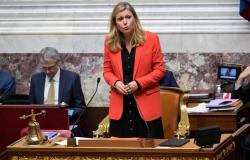Overseas mayors want money to manage water! The “Maire Infos” website, specializing in news from local elected officials, echoes this. All overseas territories are increasingly suffering the consequences of dilapidated networks and a warming climate. Elected officials took advantage of their meeting on November 18 and the Congress of Mayors of France 2024 to ask for more support from the State.
The 106th Congress of mayors and presidents of intermunicipality of France ended yesterday (Thursday November 21, 2024), at the Porte de Versailles exhibition center, in Paris. For three days, participants discussed the theme “The municipalities… fortunately!“. This event was preceded, on November 18, by the usual Meeting of elected representatives from Overseas Territories, at the Palais des Congrès in Issy-les-Moulineaux.
On this occasion, overseas elected officials demanded real credits from the State, rather than the current subsidies allocated, to resolve the water problems suffered by several territories.
The “DOM water body” was launched in 2016, for a period of 10 years. It aims, among other things, to fight against leaks and promote the reuse of water. But, according to the mayors of Overseas, this system does not meet sufficiently to meet everyone's needs.
The government has not yet responded to their request for credits.
The challenges are few, but the stakes are “huge” ; it is about modernizing networks and managing the consequences of global warming. The water crisis in Overseas Territories is multifaceted: lack of resources, engineering problems, lack of solutions specific to different territories. Thus, a rethinking of resource and infrastructure management is necessary. The mayors, on the front line, have a serious tone, but their pockets are empty.
In Guyana, river levels are at their lowest. Communities must distribute packs of water, which cost seven times more (€14 instead of €2) in the current context of inflation, according to the president of the association of mayors of Guyana. Furthermore, the rivers are also essential traffic axes; solutions are therefore needed to enable children to go to school and adults to go to work.
In Mayotte, around 30% of people are not connected to the water distribution network. The situation on site is even more complex, given the very sustained population growth.
In the Antilles, there is also the dilapidation of pipes and pollution by pesticides, such as Chlordecone.
Sanitation is also a problem. In Guadeloupe, 14 of the 18 wastewater treatment plants are dysfunctional. Not to mention non-compliant private installations, which dump wastewater into the environment.
Apart from the insufficiency of resources, elected officials also denounce the indifference of France and regulations which, sometimes, prevent them from providing solutions.
The French Biodiversity Office (OFB) would like to sanctify water budgets, a common heritage in danger.
The mayor of Basse-Terre, André Atallah, is campaigning so that “water becomes a great national cause”.
But, I'm not sure it's a sensitive issue for everyone. As a reminder, since the Barnier government, the “biodiversity” no longer appears in the title of responsibilities of the Ministry of Ecology.
The only response from the Minister of Overseas Territories, François-Noël Buffet, for the moment: elected officials must refer to the “water” component of the National Plan for adaptation to climate change, presented in October and whose credits must still be specified. Here they are left wanting.






